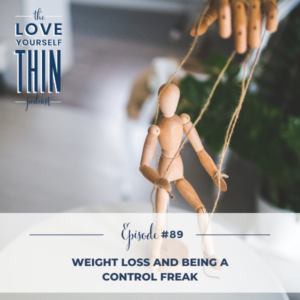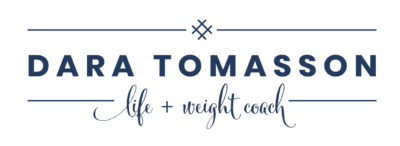
Have you ever been called a control freak before? Or what I like to call a control enthusiast? Does that thought scare you? Well today I am talking about why it is completely normal and even sometimes helpful to try and control everything around you.
In this episode we dive into your thoughts around being a control freak and a few reasons why it is so triggering for some people. We talk all about the great qualities of people who are control enthusiasts! You will feel so much relief after this episode. Let’s go!
If you are ready to lose weight and change the way you think about hunger, sign up for the lifetime access membership for Love Yourself Thin! Doors are open and you can find all the information by clicking here.
What You’ll Learn from this Episode:
The benefits of being a control enthusiast
- Bridging the Gap coaching tool and how to use it
Why people try to control everything
- We are inherently valuable
Listen to the Full Episode:
Featured on the Show:
- If you are ready to lose weight and change the way you think, sign up for the lifetime access membership for Love Yourself Thin! Doors are open and you can find all the information by clicking here.
- Leave me a review in Apple
Full Episode Transcript:
89. Weight Loss and Being a Control Freak
Have you been called a control freak before or maybe a control enthusiast? And deep down inside, you know you are and it makes you really afraid. Well, I’ve got you, because today’s podcast is going to dive really deep into why it’s so normal that you try to control everything around you, and you are gonna have so much relief. I’m Dara Tomasson, this is Love Yourself Thin Weight loss for control freaks. Let’s go.
So I don’t wanna be called the control freak either, but I kind of joke around and say, well, I’m actually a control enthusiast. But in all sincerity, I want to talk about what this means for you in your life. And I had such an amazing one-on-one call today with one of my clients, and she listens to all my podcasts and she said, Dara, you’ve gotta do this podcast episode on what we’re doing in today’s call because it was so transformational.
So I’m going to just go right in into the podcast. So what we’re gonna be doing, and don’t forget, you can download the worksheet. It’s gonna be super helpful for you. I create the worksheets for you to give you a framework for you so you can avoid overwhelm, right? Overwhelm is an indulgent emotion and it doesn’t get you anywhere. So the very first question I have is, you know, mindset is thinking about your thinking. So when you think about being a control freak, what do you think about? Now I have pros and cons. So what this means is, what are the good things about being a control enthusiast or a control freak? Well, do control freaks, do they get things done? Absolutely. They get lots of things done, they feel in control, so that helps them to stay moving forward. And then there’s the cons of which we’re gonna be talking about, so I have four of the main problems that she has when it comes to control, and she’s given me permission to share her ideas, and I know that it will be so helpful for you.
Okay. So the coaching looked like this. I said, okay, what is wrong with being called a control freak? Or it actually happened that her husband said, well, I think you’re being really controlling here. And she got really triggered. And I said, well, what’s so wrong about being controlling? The other pro about when you control things is you pay your bills. You usually follow the laws. You get places on time, right? You get other people to places on time. You’re very organized. There’s a lot of good things about being controlling because you then make sure that things get accomplished. Okay? So I wanna just kind of lighten that up a little bit because I have been called to control freak, a control enthusiast. In fact, when I was younger, I was worried about getting married because I saw people trying to control other people in marriages around me, and I didn’t want that for myself, and I didn’t want that for my husband, and I just didn’t feel like I had very good role models of people that weren’t controlling all the time.
So it wasn’t until I really started facing that I went to a therapist because I thought, I really wanna get married, but I can see all these self sabotage. And one of the things that she had me do that was so helpful was interview couples that I admired who I thought had a really solid marriage and I asked them all sorts of questions and it was very insightful to see the ways that they worked on not trying to control their spouse and how they served their spouse and loved their spouse and looked at things in a different way. It was really, really helpful.
So, in the coaching call this morning, my client and I were talking about, why she was triggered by being called controlling? And these are the things that came to her mind, and they’re on the worksheet. So if you’re being controlling, that means you’re being a bully. The other one was being mean It means you have to be mean to be controlling. A dictator. That was another worry that she had, that people, when they called her a control enthusiast or a control freak, she was being a dictator. And it kind of brought her back to when she was a mom and she’d say, well this is not a democracy. This is a dictator, and I’m the dictator here. Right? Which, of course, as a parent, you have a responsibility for children, so that makes sense. But when people become adults, they have those choices for themselves. And then the fourth obstacle is pride.
So one of the tools we use is called Bridging the Gap. So it’s taking you from where you’re at, of the being triggered by being called a control enthusiast, to being an empowered person, owning who they are, owning that they don’t have to control everything around them. Because when you think about people who try to control everything, what is the main reason they’re doing that? So what are your thoughts? One of the main reasons that people try to control everything is because they feel a lot of fear that they won’t know how to react. They don’t know what to expect. It’s kind of like a boogeyman is always around the corner and you’re thinking, oh my goodness. Like, that’s why anxiety is such a problem, because I think this could go wrong or that could go wrong or this could go wrong. So that anxiety of all those unanswered fears come up and they manifest in your reaction to try to control that. Right? You’re trying to manipulate the situation because you don’t have a lot of trust in yourself to know I can solve any problem. Everything’s figure- outable. I can do hard things. There has been a trend of when you give everyone a trophy for performance or when you take failure out of the picture for children so they can learn how to troubleshoot, they have decreased self-esteem because they don’t know how to overcome obstacles. They don’t know how, they haven’t built that trust factor inside themselves to solve problems.
So we see that, and of course that leads to anxiety. It leads to decreased self-esteem. It leads to increased mental health issues. But I’m going to share with this tool on how to not be triggered by being called to control enthusiast and not always having to try to control everything around you. So when we talk about bridging the gap, imagine you are on one side of the cliff, but you wanna be on the other side of the cliff and you’re not sure how to get over there. So you have to take a bridge to go from one side to the other. And this is where the coaching was just so helpful. She brought up being a bully. So she doesn’t like being called a control freak because insinuates that she’s being a bully. So I asked her, what does being a bully mean? It’s putting other people down. It’s telling them that they have to be more like her, and it’s not allowing them to be who they are, and so or trying to gain power over somebody else by dominating them. And so I asked her, is that what you’re doing? Is that your approach? Is that who you are? And what she realized was that she can allow people to have their own voice, but she doesn’t always have to like that. And she also realized that when other people have their voice, that there will be the option that you won’t agree, and that’s okay. So when you question, oh, am I being a bully you can ask those questions and then you can solve for that. So you see, actually, I’m not being a bully because I do let other people have their voice and I don’t always have to agree with it. And that’s okay.
The next obstacle of feeling like she was empowered versus being a control freak is being mean. And when we talked about that, it was accepting the unacceptable. So sometimes when we try to control everyone around us, it’s because there are situations that aren’t wonderful, and I talk about accepting the unacceptable. So in my mind it is unacceptable that children go to school without having food in their stomachs. That children go home in Canada or anywhere in the world and they have food insecurity. That is unacceptable to me that children do not have enough food to eat, but I have to accept that that is a reality in the world. And Byron Katie says, every time you fight with reality, you lose every time. And so accepting that that’s happening.
I went to my son’s basketball game. It was the provincial tournament, and there was a team and the parents on that team were the most loud I’ve ever experienced. They had full on drums, they had cowbells, they had the loudest noise makers ever. And I want you to imagine it’s the very last game. There’s hardly anyone there. It’s a Saturday morning and the parents are just loud, like I was handing out earplugs to everyone, and the problem was that they were the most loud when our team was playing offensive, which, you know, they call plays. Also, they were on the side where our coach would talk to the teammates. And so when it was a timeout, they were being really, really loud while the coach was trying to talk to the players. And so I have a streak of wanting to control things, wanting to make an environment better for other people. And I don’t think that’s a bad thing. There is a sense of justice within me, which is not a bad thing. I also have a lot of mercy, but it was interesting to watch myself because I really wanted to control the situation and I wanted to have a fair playing ground for the team. And so I went to the organizers and I said, is there like a sound decibel level that we can like, because I’m sure that they have their way over. He said, no, there’s no rule like that. I said, okay. So I went to that one and then I actually went with another parent and appealed to the other team, the parents and asked if they wouldn’t mind being a little less enthusiastic, a little less loud, a little less noisy when, especially when our team was on offense because they actually didn’t do that for their own team. They let their team be able to talk to each other. And it was very interesting. They, of course, were allowed to have their responses. Some were mean to me, some were rude, but I get to decide how I wanted to act in that way, and I could decide if I was being mean or if I was being an advocate or how I wanted to react.
And so that gave me a lot of power knowing I could approach a situation that was not my favorite. That I could accept the unacceptable, but I could also show up powerfully for myself and for the team. And it didn’t go the way that I wanted. In fact, they were even more loud, like, one lady was starting to use her crutches on the ground to be even louder than the drums and the cowbells. So that wasn’t such an interesting experience. But did I need to control everything? No, but I could try to help the situation as best as I could without losing my cool or feeling like I wasn’t empowered.
Okay. The third one, dictator. So one of the issues with being a dictator, and you think about why, you know, communism came to be in the first place and we’re not gonna go into a political discussion, but a lot of times a dictator, they can have a good reason. So for example, they could say, well, I want everyone to be equal. I don’t want, you know, the, the rich to get richer and the poor to get poorer. I don’t wanna have this discrepancies. You know, there’s a lot of, like when you talk about utopia or whatever, these societies where everyone is equal. Well, so what can happen is if you’re a dictator, you’re just telling people what’s happening. What that’s behind that is a fear of failure. And there’s also a fear of being rejected. And at the very base of it is there’s no trust. There’s no trust that if there are poor people or if there are rich people that they will come together and help each other and support each other. And we can appeal to everyone’s goodness and then if they don’t agree, if they don’t do like the parents at the basketball game and if they get louder, then I can just double down on my earplugs and I can breathe and I can feel disappointed and I can just deal with the emotions that come from watching a game where there really isn’t anything in my control that I can do. I went back and spoke to the organizers. They said they would talk to them about being rude to us, but it’s not about, it was about having a fair playing ground for the boys.
And then the last obstacle for feeling like you are trying to control everything is pride. And CS Lewis has a really great quote about pride. Pride gets no pleasure of having something only out of having more of it than the next man. Another way of looking at pride when it comes to trying to be a control enthusiasts or control freak is that, and CS Lewis talks about this, is pride is man trying to play God for his own life. So thinking that he has to be in charge. Some other ones from CS Lewis, For pride is spiritual cancer. It eats up the very possibility of love or contentment or even common sense. Pride gets no pleasure out of having something, only out of having more of it than the next man. It is the comparison that makes you proud, the pleasure of being above the rest. Once the element of competition is gone, pride is gone. So when you think about pride being an obstacle it’s interesting to think about how humility and worthiness and humbleness fall into place.
The first principal I teach in Love Yourself Thin, is that our worth is already set. And you’ve heard me say this over and over and over again, and I will continue to say it over and over and again because when you think about it, when a baby is born, at what point did they not become that perfect child? That perfect baby, right? Our worth is already inherent. it’s a non-negotiable. And so when you think about a teeter-totter, the only way you go up is by putting someone else down. And that’s pride and that’s, that is very different than feeling proud of yourself. Feeling proud of yourself, says, Hey, look, I’ve come a long way. Hey, look, look at me. I’ve overcome these obstacles. I feel empowered because I overcame that challenge and difficulty, or because I had that difficult conversation, I’m showing to myself that I can be more, I can grow up. It’s like when my little son made, he called them mustard sandwiches for our Nick and Nick. And it was the first time he’d made a sandwich. He put so much mustard on it and I ate that mustard sandwich for the nick and Nick outside in our front yard. And he was so proud of himself. Look what I’ve done. I did something that I’ve been watching my mom do for years. It was so satisfying.
So I want to just share with you that when you look at this idea of pride, and when you look at this idea of being a control freak, I want you to think about this in a totally different way, as you can hear as I’ve been talking in this podcast. But let’s just play with the idea of the reason we have control issues is because we don’t truly trust ourselves. We don’t really understand ourselves. It’s like we’re playing a game, but we don’t know the rules. Have you ever done that when you’ve gone to someone’s house and they’re like, oh, let’s play this game. And then they explain, the rules to you and you’re like, ah, haha, I don’t really understand. Or when you’re at the quilt shop and they’re like, oh, we gotta figure out your binding, or we have to figure out your sashing. And they start talking about all this stuff, all this math, and you’re just like, oh yeah. Ah-ha. Yeah. Mm-hmm. Yeah. But meanwhile you don’t really know what that is. And so that feels scary. And so when we go to control, it’s like a way to try to feel powerful, but it’s not a true way to have that power. To have true power would be, Hey, I don’t really understand how to play this game. Do you mind explaining it to me again? That’s empowering. That’s what’s really gonna help you to move forward. And it takes humility and it takes the ability to acknowledge. And to be truly honest with yourself.
So I love this podcast. I love that we’ve had this time together, and what I wanna invite you to do is I want you to invite yourself to think about your relationship with food. I want you to think, okay, what is my current weight? How much do I weigh? And just like with my son in his game, they lost by four points. And yes, the refs were terrible. And yes, you know, they should have called a whole bunch of things and it was, you know, difficult to watch. But the truth is they didn’t win and they have to accept that. And so when you look at your body and you say, okay, I’m six feet tall, I weigh 202 pounds, my ideal weight is probably more like 1 50, 1 55. Why am I carrying all this extra weight on me? And when you can take responsibility and you can say, all right, I’m not gonna try to control the universe. I’m gonna look at what’s really going on, that’s when you’re gonna get your power. You don’t get your power by trying to control everyone and everything. You get your power by asking questions, by getting curious and being honest, truly honest with yourself. And that is what I help women do.
So if this is resonating with you and you are feeling really energized by the fact that there is the missing piece to weight loss. It is about the way you think about yourself. I want to invite you to take advantage of my free offer. Of those coaching sessions that I offer every week, and I can give you some free coaching and then we can have a conversation if Love Yourself Thin is the right fit for you, or if my one-on-one coaching is the right fit, or if some other programs, some other methods, some other way because remember there’s lots of different ways of losing weight. But if you are all in on loving yourself, accepting yourself how you are, and learning how to use that self-care to change the way that you approach the way you take care of yourself, the way you eat food, then come and talk to me. That is definitely the process that’s gonna help you to lose the weight and never have to worry about putting that weight back on. All right. I can’t wait for the opportunity to talk to you and to help you as you progress. Take care, everyone.






